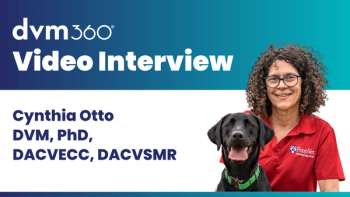
Project you: What we're reading, watching and skimming in spring 2016
dvm360.com editors are people, too! This month, we've collected our favorite books, videos and articles you should check out.
What we're reading ...
Unlike other medical professionals, veterinarians don't have the luxury of understanding exactly what their patients are going through. And it's likely that very few human medical professionals, when given a death sentence at the apex of their career, would be able to capture the experience like Paul Kalanithi in When Breath Becomes Air. Kalanithi was a practicing neurosurgeon when he was diagnosed with stage IV lung cancer at age 36. He died in March 2015. His posthumously published memoir, released in January 2016, illuminates the relationship between doctor and patient, and what happens when they become one and the same.
When Kalanithi wrote to a friend about his diagnosis, he said, “It's just tragic enough and just imaginable enough.” That perfectly practical yet enlightened approach to life and death is what makes When Breath Becomes Air such a fulfilling read. It's available on
What we're watching ...
It may be hard to believe, but did you know that the very worst medical students are the ones who respond strongly affirmative to the statement “I love helping others”? It's true. Adam Grant, author, researcher, top-rated professor at Wharton and a New York Times writer on work and psychology, explains why those who consistently give favors are some of the least successful-and some of the most successful-in their lives and careers.
Plus, we loved ...
Less successful “givers” and successful “givers” have one difference: The ease with which the giver asks for help. When they bite off more than they can chew, less successful givers suffer in silence. Um, sound familiar? But asking for help doesn't have to be a bad thing! Some view asking for help as an admission of incompetence. But recent research from the Harvard Business School shows that when you ask for help, people may actually find you more competent, not less.
Newsletter
From exam room tips to practice management insights, get trusted veterinary news delivered straight to your inbox—subscribe to dvm360.


